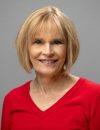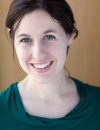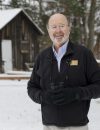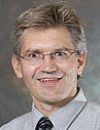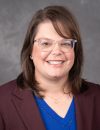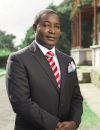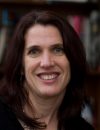UW In The News
-
How the U.S. Made Progress on Climate Change Without Ever Passing a Bill
“Policy makers have been dithering about climate change since 1988, and in the background you have this steady progression of technologies,” Greg Nemet, a public-affairs professor at the University of Wisconsin at Madison, told me. Foreign industrial policy has driven that progression, he said, although American tax rebates—and California’s economic planning—have also played a part. Those policies have allowed the entire world to decarbonize and led companies to support ever more aggressive carbon cuts. That, in essence, is the green vortex.
-
U.S. Covid-19 Deaths Top 600,000
“In the U.S., death from Covid is almost entirely preventable,” said Ajay Sethi, an associate professor at the University of Wisconsin–Madison, citing access to vaccines in the country. “Crossing the 600,000 milestone is a sobering reminder that the virus is still spreading and that there are still too many people unvaccinated.”
-
Answers to these botanical mysteries could help a climate-stressed world
In addition to original ancestors, feral plants in other diversity hotspots should also be collected and conserved, adds Eve Emshwiller, an ethnobotanist at the University of Wisconsin-Madison who coauthored the Brassica rapa study. Wild-growing varieties are often seen as weeds, and farmers are sometimes advised to eradicate them.
-
Why America Doesn’t Really Make Solar Panels Anymore
More recently, Chinese firms have emulated this technique in order to eat Japan’s share of the global solar industry, Greg Nemet, a public-policy professor at the University of Wisconsin and the author of How Solar Energy Became Cheap, told me.
-
‘Crunched on both sides’: Older millennials balance student loans, retirement saving and kids’ college funds
While it’s not unusual at this stage of life to weigh your family’s financial priorities, older millennials are being “crunched from both sides,” says Cliff Robb, an associate professor at the University of Wisconsin, Madison, who studies financial decision-making.
-
‘Crazy Worms’ Threaten America’s Trees And Maple Syrup : NPR
“They are very active,” Monica Turner, a University of Wisconsin-Madison professor, once told Wisconsin Public Radio. “They almost seem like worms that want to be snakes.”
-
Reduced U.S. Covid-19 Data Reporting Worries Some Health Experts
Ajay Sethi, an associate professor at the University of Wisconsin—Madison, said a basic tenet of surveillance is to “do something,” and for a disease like Covid-19, real-time public-health data spurs action in ways that weekly or monthly reporting cannot.
-
Spreading Vaccine Fears, And Cashing In
“People trying to reduce confidence through misinformation — that’s unfortunate and it’s something that’s sort of hard to fight,” said Ajay Sethi, an epidemiologist at the University of Wisconsin-Madison School of Medicine who teaches a class to future doctors on conspiracy theories. He urges his students to be compassionate and not condescending, since all of us are vulnerable to misinformation when it seems to confirm our prior beliefs. “It’s all innuendo, but it’s wrong, and it does spread like wildfire.”
-
Earth has lost and gained many oceans. Here’s where a new one might appear next.
“The changes in the entire Earth system that take place as part of that changing geography are profound,” says Shanan Peters, a geoscientist at the University of Wisconsin-Madison, who specializes in the co-evolution of life and Earth’s systems.
-
Jair Bolsonaro is facing a political reckoning in Brazil. How far will it go?
“This is one more element in place that could lead to Bolsonaro’s downfall,” Jessica Rich, a political science professor at the University of Wisconsin, said. “I don’t think they are yet all in place. But this is a real escalation of the threat against him.”
-
South Dakota Meat Processing Plant Weighing Walkout After Union Rejects Smithfield Contract
“This is a moment when workers have leverage right now,” said Laura Dresser, a labor economist at COWS, a liberal think tank at the University of Wisconsin in Madison.
-
Czech women might be able to have different last names
David Danaher, professor of Slavic languages and literatures at the University of Wisconsin at Madison, noted that similar proposals have failed in the past, but said that non-gendered last names aren’t necessarily new in the Czech Republic.
-
What lurks beneath: A new answer to more intense storms
As storm-water infrastructure is failing, climate change is driving more frequent and intense rainfall. A 2019 study by University of Wisconsin researchers found in the eastern half of the United States, 100-year storms — ones with a 1 percent chance of happening in any year — were occurring almost twice as often as in 1950. In 2020, there were a record 20 storm and hurricane events each causing more than $1 billion in damages, according to the National Oceanic and Atmospheric Administration.
-
Air purifiers can’t save us from airborne pandemics.
Scientists have only begun to study the chemical mechanisms by which the purifiers actually work indoors, says Timothy Bertram, a University of Wisconsin chemist leading a study of bipolar ionizers. Without that understanding, it’s hard to evaluate what, if anything, additive purifiers do when they’re installed inside an air vent or plugged in at the back of a classroom. So far, Bertram’s study has found no evidence of the ionizers reducing aerosols.
-
No seditious conspiracy charges emerge in U.S. Capitol riots cases
“Seditious conspiracy is a vague and overbroad statute that could be used to criminalize some legitimate forms of protest and much mundane criminal activity,” said Joshua Braver, an assistant professor at the University of Wisconsin Law School.
-
Memorial Day Will Likely Mark Covid-19 Pandemic Milestone – WSJ
“Our outlook continues to improve, but there are still too many people yet to be vaccinated to feel completely safe as a whole,” said Ajay Sethi, an associate professor at the University of Wisconsin–Madison.
Dr. Sethi said he wouldn’t be surprised to see an increase in cases within communities with low vaccination rates, but he didn’t expect the kind of surge the country saw last summer.
-
UW System Bringing Back Summer Youth Programs
As colleges and universities ease restrictions aimed at preventing outbreaks of COVID-19, the University of Wisconsin System has announced it is bringing back pre-college and summer youth programs this summer.
-
Pittsburgh Is Losing Black Residents. One Entrepreneur Is Trying to Bring Them Back.
Economic conditions for Black residents are among the worst in urban America, despite sustained efforts to improve them. In Pittsburgh, nearly 45% of Black children live in poverty. Only Milwaukee, Buffalo and Cleveland have higher rates, according to a University of Wisconsin study last year of the nation’s 50 largest cities.
-
Every state offers a 529 plan—here’s how to pick the best one for you
“Everyone’s situation is different, but 529 plans for most people are an excellent choice,” says Cliff Robb, associate professor of personal finance at the University of Wisconsin, Madison. “The most important benefits of 529s are the flexibility — flexibility in what you’re investing in within those plans and flexibility to pick any state’s plan — and the true benefit of tax-free growth upon withdrawal.”
-
Fact check: Lemon drops and red onions won’t cure or prevent COVID-19
“Nothing is yet known on whether the compounds found in onion would have protective or inhibitory effects on COVID-19,” Irwin Goldman, a professor of horticulture at the University of Wisconsin, Madison, wrote in an expert opinion for the trade group.
-
WHO renames COVID variants with Greek letter names to avoid stigma
Not all geographic names are stigmatizing, said Ajay Sethi, an epidemiologist at the University of Wisconsin-Madison. “Here in Wisconsin, we have Lacrosse encephalitis virus, but no one ever stigmatizes Lacrosse, Wisconsin. And Norovirus is originally from Norwalk, Ohio, but people aren’t afraid of Ohio,” he said.
But for SARS-CoV-2, which has caused such global devastation, names can have serious consequences. “It’s always a good idea to have a name that is just a name,” he said.
-
Study finds 37% of global heat deaths caused by climate change
“People continue to ask for proof that climate change is already affecting our health. This attribution study directly answers that question using state-of-the-science epidemiological methods, and the amount of data the authors have amassed for analysis is impressive,” said Dr. Jonathan Patz, director of the Global Health Institute at the University of Wisconsin.
-
14 Excerpts from Commencement Speeches Without the Word C*vid
André De Shields
Mr. De Shields is an actor, director and choreographer. He was the keynote speaker at the University of Wisconsin-Madison.
Why is today different from any other day?
Because you are about to use the many years you have prepared to go out into the world and find employment.
But not just any employment. Here is my charge to you: Don’t look for just a job. Look for that horizon that if you do not discover it, it will forever remain a secret. Look for that treasure, that if you do not uncover it, it will forever remain just X marks the spot. Look for that mystery that if you don’t unravel it, it will forever remain a mystery.
-
A Number Theorist Who Connects Math to Other Creative Pursuits
“There are many different pathways into mathematics,” said Jordan Ellenberg, a mathematician at the University of Wisconsin, Madison. “There is the stereotype that interest in math displays itself early. That is definitely not true in general. It’s not the universal story — but it is my story.”
-
In defense of the two-state solution
“Abandoning the desire for self-determination, something that has been the very raison d’etre of Palestinian nationalism since the 1960s and something that has actually been achieved by Zionists, is a steep demand to make of both,” Nadav Shelef, a University of Wisconsin professor who studies national identity and ethnic struggle, wrote in a recent essay applying academic research on how nationalist sentiment declines to the Israeli-Palestinian conflict.
-
Why Amazon just spent more than $8 billion on MGM
This was the “beginning of a 35-year period when Kerkorian would buy and sell MGM three times,” according to Tino Balio, professor emeritus of communication arts at UW-Madison, who also authored a book about MGM.
-
5 AAPI Women From History Whose Names You Should Know
“The first recorded history of a Chinese woman in the United States tells the story of a ‘beautiful Chinese Lady’ transported into New York Harbor,” Leslie Bow Ph.D., professor in the Department of English and Program in Asian American Studies at the University of Wisconsin Madison, tells Bustle. This was Afong Moy, a 19-year-old Chinese woman who was coerced into traveling to the U.S. In the 1830s and ‘40s, Moy would tour the U.S. as an act, displayed for up to eight hours a day in private homes, and later in P.T. Barnum’s circus. “The spectacle of Afong Moy produced by Barnum and white traders unfortunately sutured American associations between race and exoticism that cling to Asian American women today,” Bow says.
-
What Honest Abe Learned From Geometry
Knowing geometry protects you: Once you’ve experienced the sharp click of an honest-to-goodness proof, you’ll never fall for this trick again. Tell your “logical” opponent to go square a circle.—Mr. Ellenberg is a professor of mathematics at the University of Wisconsin. This essay is adapted from his new book “Shape: The Hidden Geometry of Information, Biology, Strategy, Democracy and Everything Else,” which will be published May 25 by Penguin Press.
-
Lung Samples From 1918 Show a Pandemic Virus Mutating
Scientists have long speculated about why the 1918 pandemic’s second wave was deadlier than the first. Patterns of human behavior and seasonality could explain some of the difference—but the virus itself might have changed too. “And this starts to put some meat on the bone” of that hypothesis, Andrew Mehle, an influenza researcher at the University of Wisconsin at Madison, who was not involved in the study, told me.
-
An All-American Cheese From the Atomic Age
The year was 1947. The place, University of Wisconsin-Madison. Bacteriology professor Stanley Knight had long admired the research of Nobel laureate H.J. Muller, whose body of work within and after the Manhattan Project focused on mutations in living things exposed to radiation. Muller’s research had been weaponized, but his findings got Knight thinking: Could the science behind radiation-induced mutations be used for productive ends—to make a better piece of cheese? It was a highly Wisconsonian quest.
- Newer stories
- Page 41 of 140
- Older stories
Featured Experts
Kathleen Glass: Food safety
Food is an integral part of Thanksgiving. And who doesn't love leftovers? But after how long should you leave those… More
Cecelia Klingele: Body-worn cameras by police
Madison Police Chief Shon Barnes is requesting that the city fund widespread use of body cameras for officers in the… More
Stanley Temple: Fall phenology
The days have finally started getting cooler and we all know winter awaits. Stanley Temple, an expert on birds, wildlife, endangered… More
Jonathan Temte: The seasonal flu shot
Family medicine professor Jonathan Temte is available to discuss this year's updated seasonal flu shot and flu prevention and control. More
Noelle LoConte: Pancreatic Cancer Awareness Month
Pancreatic cancer is one of the most difficult cancers to prevent, diagnose or treat. Earlier this month, music legend Quincy… More
Alvin Thomas: Movember and Men's Health Month
You might see more facial hair this month as Movember goes into full effect, drawing awareness toward men's health. Alvin… More
Dominique Brossard: Vaccine hesitancy
With a new administration poised to take power in January, a change in policy regarding vaccines may also be on the way.… More

